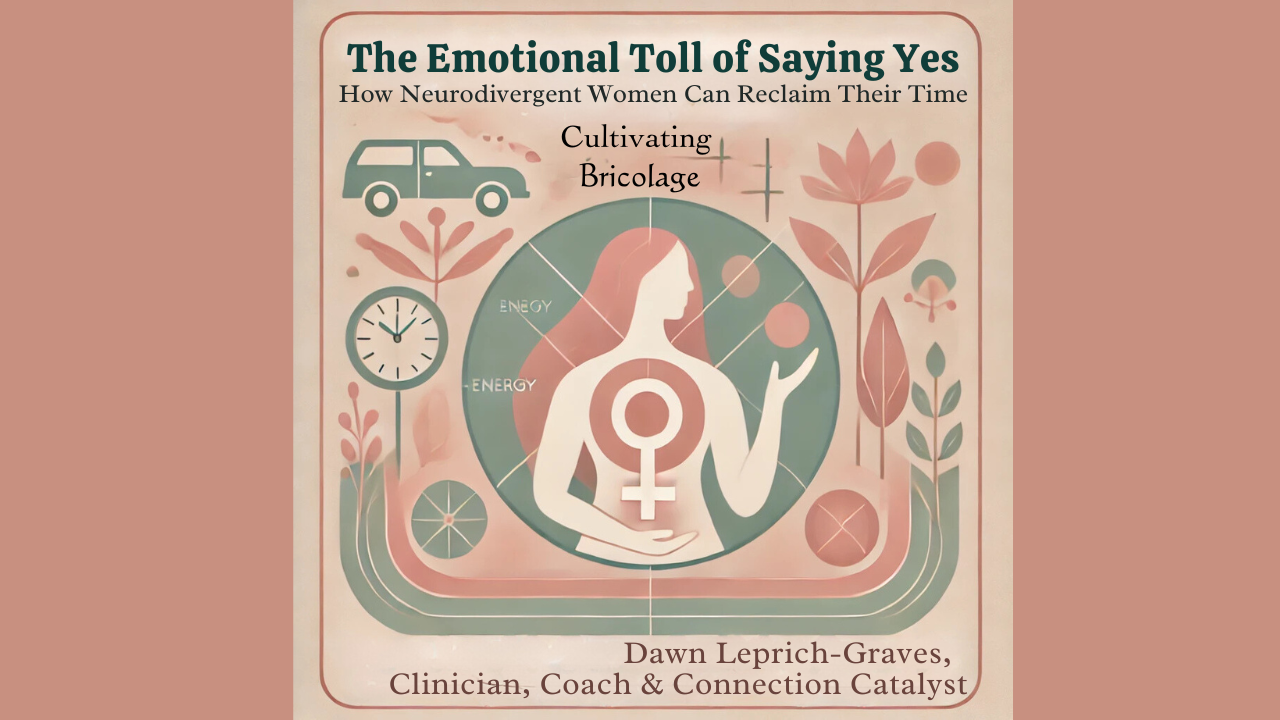The Emotional Toll of Saying Yes: How Neurodivergent Women Can Reclaim Their Time
Jan 26, 2025
When Saying Yes Feels Like a Habit
If you’ve ever said “yes” to something you didn’t want to do—out of guilt, fear of disappointing someone, or just to avoid conflict—you’re not alone. For neurodivergent women, the pressure to please others can feel overwhelming, leading to an overbooked schedule and emotional exhaustion.
But here’s the thing: Every “yes” to something you don’t want is a “no” to something you truly need. Let’s talk about how to break the habit of overcommitting, reclaim your time, and prioritize what matters most.
Why Neurodivergent Women Struggle to Say No
There are many reasons why saying no feels hard, especially for neurodivergent women:
- Fear of Judgment: Worrying others will see you as unkind or unreliable.
- Hyper-Empathy: Feeling the emotional weight of disappointing someone else.
- Masking: The pressure to appear agreeable and “easy to work with.”
Spoiler alert: Saying no doesn’t make you selfish—it makes you self-aware.
The Cost of Overcommitting
When you say yes too often, you’re not just giving away your time—you’re also sacrificing your:
- Energy: Constantly overextending yourself leads to burnout.
- Focus: Too many commitments can derail your priorities.
- Emotional Well-Being: Resentment builds when you feel like you’re always putting others first.
How to Start Reclaiming Your Time
1. Practice a Pause Before Answering
When someone asks for your time, don’t answer immediately. Instead, say:
- “Let me think about it and get back to you.”
- “I need to check my schedule first.”
2. Identify Your “Yes” Criteria
Before committing to something, ask yourself:
- Does this align with my values?
- Do I have the bandwidth to give this my best?
- Will saying yes bring me joy or growth?
3. Use “Soft No” Phrases
If a direct “no” feels too uncomfortable, try these:
- “I’m flattered you asked, but I can’t take this on right now.”
- “Thanks for thinking of me, but I’m focusing on other priorities.”
The Power of Boundary Scripts
Having pre-prepared boundary scripts can make saying no easier.
Examples:
- For Work Requests:
- “I’d love to help, but my current workload won’t allow me to take this on.”
- For Social Invitations:
- “Thank you for inviting me! I’m keeping my schedule light for self-care.”
Looking at “No” as a Being Values Aligned
Saying no isn’t about shutting people out—it’s about creating space for what truly matters. “No is a complete sentence, and it’s an act of self-compassion.”
Practice Makes Progress
The first few times you say no might feel awkward, but like any skill, it gets easier with practice. Start small, celebrate your wins, and notice how reclaiming your time impacts your energy and happiness.
Ready to Reclaim Your Time? Let’s Work Together.
If you’re ready to set boundaries, break the overcommitting habit, and prioritize what matters, join my coaching program for neurodivergent women. Together, we’ll create strategies to help you reclaim your time and energy.
Let’s make room for the life you truly want.
– Dawn Leprich-Graves, Cultivating Bricolage, coaching

